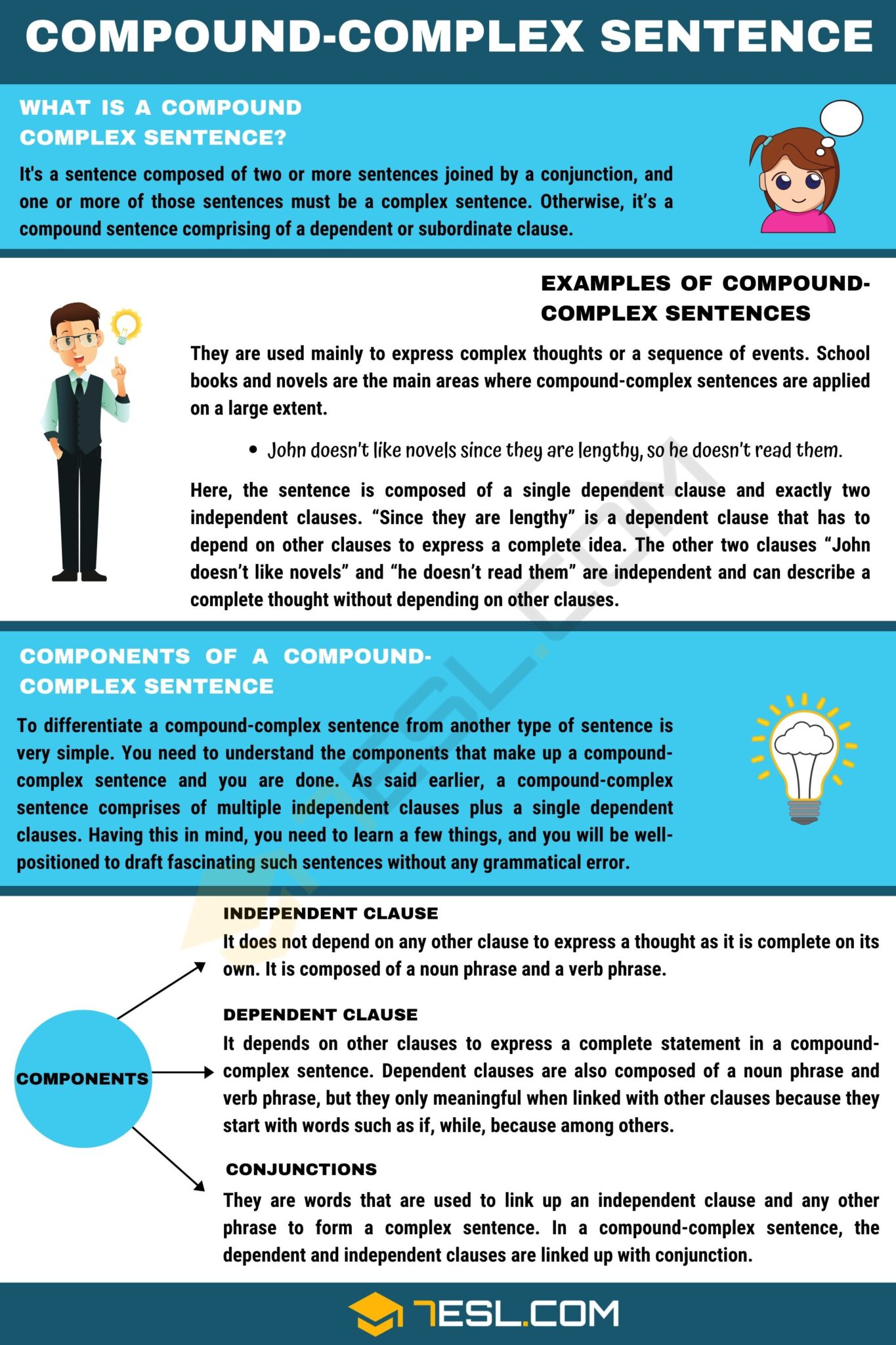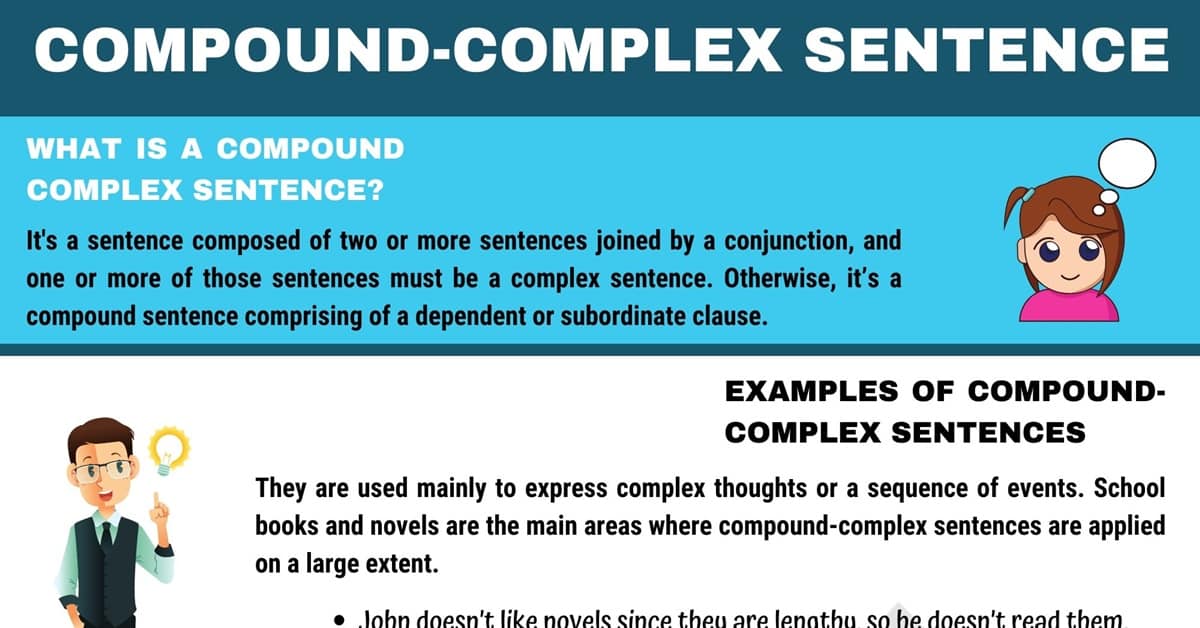To have a clear picture in mind about a compound-complex sentence, we need first to understand what a compound and complex sentence entail. A compound sentence is composed of two simple sentences connected by a conjunction. A complex sentence, on the other hand, is composed of a simple sentence and a subordinate or dependent clause. A dependent clause, also known as the subordinate, is composed of a subject and a verb, but it cannot express a complete thought without depending on other clauses.
Compound-Complex Sentence
What is a Compound Complex Sentence?
It’s a sentence composed of two or more sentences joined by a conjunction, and one or more of those sentences must be a complex sentence.
Otherwise, it’s a compound sentence comprising of a dependent or subordinate clause.
Examples of Compound-Complex Sentences
They are used mainly to express complex thoughts or a sequence of events. School books and novels are the main areas where compound-complex sentences are applied on a large extent. Let’s look at the following examples to get to learn what’s entailed in this type of sentence.
- John doesn’t like novels since they are lengthy, so he doesn’t read them.
Here, the sentence is composed of a single dependent clause and exactly two independent clauses. “Since they are lengthy” is a dependent clause that has to depend on other clauses to express a complete idea. The other two clauses “John doesn’t like novels” and “he doesn’t read them” are independent and can describe a complete thought without depending on other clauses.
- The parents started fighting, so the kids disappeared, and I was unable to withstand, so I remained calm.
This sentence is composed of multiple clauses, but the rules are still the same.
The independent clauses are complete sentences, whereas dependent clauses are incomplete.
The above examples use conjunctions to join the clauses together.
Components of a Compound-Complex Sentence
To differentiate a compound-complex sentence from another type of sentence is very simple. You need to understand the components that make up a compound-complex sentence and you are done. As said earlier, a compound-complex sentence comprises of multiple independent clauses plus a single dependent clauses. Having this in mind, you need to learn a few things, and you will be well-positioned to draft fascinating such sentences without any grammatical error.
Independent Clause
It does not depend on any other clause to express a thought as it is complete on its own. It is composed of a noun phrase and a verb phrase. In this case, a noun phrase is a subject, and the verb phrase is a predicate that modifies the subject.
In this type of sentence, the independent clauses are referred to as coordinate clauses.
Coordinating conjunctions are used to link up two or more independent clauses, as illustrated in the following examples:
- Though he was late, James knew he had to complete the assignment, and he quickly went to the study room.
- She loves listening to music, but she can’t dance when music is played.
Here “and” and “but” are the conjunctions used to link up the independent clauses in the above sentences.
Dependent Clause
It depends on other clauses to express a complete statement in a compound-complex sentence. Just like independent clauses, dependent clauses are also composed of a noun phrase and verb phrase, but they only meaningful when linked with other clauses because they start with words such as if, while, because among others.
In simple terms, they are designed to make a sentence much more meaningful.
In the example, “Though he was late” it describes why James was having a problem completing the assignment. It’s is meaningless without depending on an independent clause. The clause begins with the subordinate conjunction “Though”.
Conjunctions
They are words that are used to link up an independent clause and any other phrase to form a complex sentence. In a compound-complex sentence, the dependent and independent clauses are linked up with conjunction. The commonly used conjunctions are and, but, and or.
Coordinating conjunctions
They are designed to link up independent clauses and other simple phrases. The most used coordinating conjunctions are so, or, for, but, yet, and, and nor.
Always include compound-complex sentences in your writing to make it appealing and much more meaningful to your readers. By doing this you can be sure to attract more readers to your content because it is interesting and informative.
Compound Complex Sentence Infographic









0 Comments